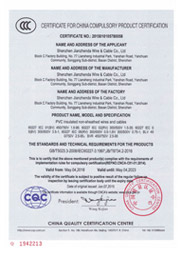 Author: Joey Wan
Author: Joey Wan  June 19,2022
June 19,2022
Recently, the Biden administration in the United States suspended tariffs on photovoltaic panels including photovoltaic cable imported from four Southeast Asian countries. This is in fact part of a longstanding dispute between the United States and China. Proponents say the decision will accelerate the U.S. transition to renewable energy — and, at the same time, will certainly help industries in the Southeast Asian nation. In fact, U.S. consumers now install imported photovoltaic panels including solar dc cable on their homes or commercial buildings, most likely from Southeast Asian countries.
More than 85 percent of all PV panels including vital connecting part: solar dc cable entering the U.S. market last year came from four Southeast Asian countries: Malaysia, Vietnam, Thailand and Cambodia, according to U.S. consultancy Rystad Energy. Trade data shows that Malaysia and Vietnam top the list - with PV exports to the US worth $2.5 billion in 2021. Thailand exported more than $1 billion of photovoltaic panels to U.S. customers last year, while Cambodia's exports were about a quarter of Thailand's, or $250 million. U.S. Commerce Department investigators suspect that Chinese companies have been using Southeast Asian factories to circumvent U.S. import tariffs on Chinese PV products (contact us JZD Cable for the TUV certified photovoltaic cable)— in some cases, by simply assembling products that are actually made in China in Southeast Asia.
The Commerce Department investigation will continue — the Biden administration is also using the U.S. Defense Production Act to kick-start the production of photovoltaic panels in the U.S. — but it will undoubtedly take some time. A statement from the White House said that photovoltaic products from Southeast Asian countries will not increase new tariffs for the next two years, especially for the connecting part solar dc cable. At the same time, the United States will accelerate the establishment of a domestic photovoltaic industry chain."
